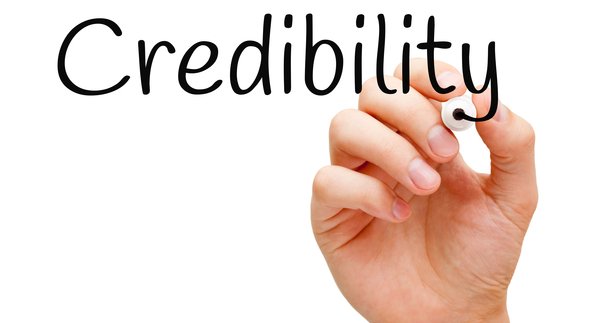Guest post by: Christopher Ryan CEO or Fusion Marketing Partners and Center for Business Modeling.
Chris is a SCORE colleague and a marketing and sales maven. We are super fans of each others work. The following post was published by Chris on his blog in July of 2017 and is chock full of valuable advice.
I got the idea for this post when listening to one of our smart Fusion Marketing Partners’ clients present at a webinar. The company official who presented was not particularly dynamic or overly-polished but he did a great job of presenting the information in a thoughtful and logical manner and he definitely had what I term “marketing credibility”. As someone who studies and practices communication for clients and our own company, I read and listen to many so-called gurus who represent themselves as experts in their space.
Here are some statements I have heard or read recently that fall into the incredible category:
- “Our xxxx software always outperforms our competition.”
- “Our special xxxxx supplementation is guaranteed to make you lose weight”
- “We have 100 percent customer satisfaction.”
- “My normal consulting rate is $10,000 per day” (but you can join my private coaching group for only $500).
- This timeshare will probably go up in value big time.
- “Buy this stock now because it will double in price within six months.”
Don’t know about you but I tired of these incredible claims. And yes, I did once buy a timeshare and learned a painful lesson (fool me once, shame on you; fool me twice and shame on me). Yes, people fall for these claims and yes (with a few limitations) it is pretty much a free market where you can say anything you want. But unless your goal is short-term sales, regardless of the cost in brand reputation, it’s best to be in the credible camp. I wrote an earlier post on the subject of incredible marketing claims.
Our goal when building marketing credibility and thought leadership for clients is to help prospects and customers know, like and trust the client. Perhaps the third of these attributes (trust) is most important. People who know you and like you will still not buy from you if they don’t trust you. Here are six strategies to build and keep trust and credibility:
- Be honest. In every situation. This is so important because once lost, trust is hard to regain. We marketers are trained to put our best foot forward and to project the most optimistic picture of our product and/or services. But beware of making statements that are so outlandish that other things you say, even if true, are questioned.
- Meet your commitments. I have a professional services provider I have been working with for many years regarding dozens of different matters. Yet the past six months have been one missed deadline and one unfulfilled promise after another. I reluctantly (and sadly) have to say goodbye to this provider because their credibility well has run dry.
- Admit your weaknesses. Again, this is hard for us marketers but it does help you connect with, and build bridges to, your client.
- Take the high road. Factual statements about your strengths vs. the competition are fine, but make sure you are more focused on why you are better instead of why the other company is bad. When you go on the attack, you may damage your opponent but sometimes do more damage to your own reputation. When in doubt, keep it positive!
- Hold your fire. Even if you take the high road, there is no guarantee that you and/or your company won’t be on the receiving end of someone else’s criticism/vitriol. As I painfully learned earlier in my career, it is usually better to let things pass than engage and escalate the situation (exactly what the critic wants you to do). Yes there are exceptions to this rule – no one likes a doormat.
- Be genuine. This is a tough one because when you are communicating, you have a tendency to want to please the people you are communicating to and tell them what you think they want to hear. But remember that the biggest rewards go to those who are seen as unique and special, not to those who imitate others or are always saying what’s convenient or flatters the listener. In this world of imitators and false prophets in the marketplace, a “real” person is always the preferable partner.
I’ll leave you with a really good quote from Ann Voskamp about credibility in writing: “Good writing, from my perspective, runs a lot like a visual on the screen. You need to create that kind of detail and have credibility with the reader, so the reader knows that you were really there, that you really experienced it, that you know the details. That comes out of seeing. “
I think Ann is saying that when it comes to credibility, seeing is believing. People with marketing credibility give their supporters (and their detractors!) observable evidence that they’re up-front, honest and dependable. And they never forget that in the long-term, being credible almost always beats being “incredible”.












